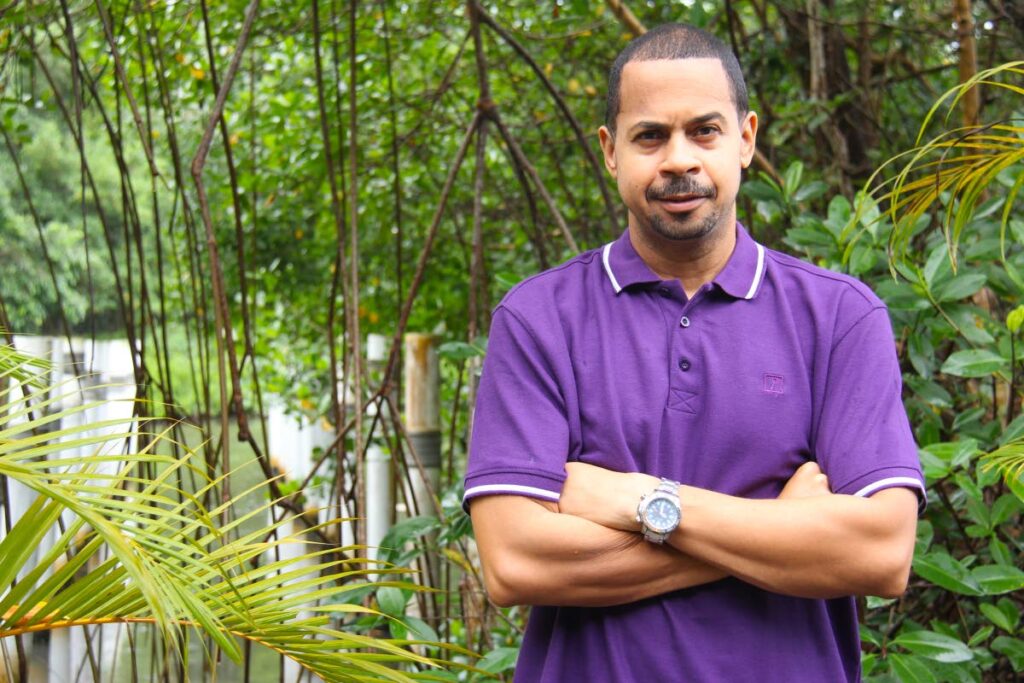Long live the (Chow) King

PAOLO KERHANAN
I REALLY hate to say this, because I run the risk of people thinking poorly of me; but I'll go ahead anyway.
When was the last time you cringed seeing the police twisting the arms of a young man behind his back and tossing him into a police car? Was it as far back as...never?
We're so oppressed and traumatised by violent crime that videos of dibby dibby yutes being roughed up by the fuzz feel like some version of justice, even if it's a knock-off brand.
However, what happened in the Croisee last Sunday wasn't justice or any imitation of it. Police "raffed" a young man vending near the bus route. To be clear, he was hawking his wares in a spot where, apparently, the prohibition against doing so is explicit.
By his own admission, he'd been finger-wagged about it before. This time the police slapped cuffs on him and a few fines for good measure.
The youth, who calls himself the Chow King (III) appeared clean-cut, wearing a chef's smock, jeans pants cut in the contemporary style, and clean white shoes. If he's out of his teens, it would only be by a week.
Most striking about that unpleasant scene was the young man's presentation.
His aesthetically packaged products were contained in several neatly-laid-out plastic boxes. There was a sprawling burgundy parasol tethered to a squat nearby tree. Everything about this iteration of the Chow King said "ambition."
Was he vending illegally? Yes.
Were the police wrong in their actions? No.
Could they have handled it differently? Mos def.
Officers at the time might not have considered how clasping those cold, callous bracelets of the state onto this young man's wrists could place him right at the crossroads – the junction where the devil usually appears with an irresistible deal.
Not far from where the arrest happened, there are established businesses that have been openly flouting the law forever. They co-opt pavements for their own purposes and snarl traffic.
Mechanics line already narrow streets with derelict vehicles. There are establishments whose doors open directly onto sidewalks. Yet they don't attract the attention of zealous law enforcement or government agencies.
Politicians thumb their noses at the law and propriety while leadership circles the wagons to defend their corrupt privilege.
Naturally, some people feel unfairly targeted when others break the law without so much as a second look from Babylon. It reinforces perceptions of selective application of the law. The rich or connected ramajay, while hustlers living day to day get crushed under the boot-heel of authoritarian caprice.
As you know, nothing distils animosity into criminality among the unexalted quite like inequality.
The officers' enthusiasm, in this case, stands in stark contrast to how vendors in other parts of the country are handled. In places like Port of Spain, Chaguanas, and San Fernando, vendors dominate city sidewalks. They block window displays of legitimate businesses haemorrhaging rents, taxes, and assorted fees.
Street vending is an inextricable strand of our cultural DNA.
The economy doesn't provide jobs for all, nor does our education system render all who are extruded by it fit for purpose.
Please do not interpret this as an endorsement of a free-for-all on streets and sidewalks. Vending has to be managed, through some uniform policy that approximates fairness and balance. What's good for the goose and all that.
It's interesting to see how other countries grapple with complex issues around vending. In Singapore, the government moved street vendors into food-court-style facilities. Hygiene is enhanced, along with access to amenities. Not everyone's happy, but that's an unattainable goal anyway.
Street vending of food in Los Angeles in the US is legal, albeit impractical for many, on account of onerous permitting procedures and draconian health regulations.
There are ongoing campaigns to have stifling laws overhauled to be more in line with the needs of vendors and the culture of the city.
What happened to the Chow King in San Juan is not just about vending. It's about the way the dysfunction of our society breaks some citizens and gives others breaks.
Now, we can't complain about the police not doing their jobs and then wail on them when they do it. The officers did the right thing in law on this occasion.
Perhaps next time though, in consideration of the bigger picture, they might be inspired to do the human thing.


Comments
"Long live the (Chow) King"